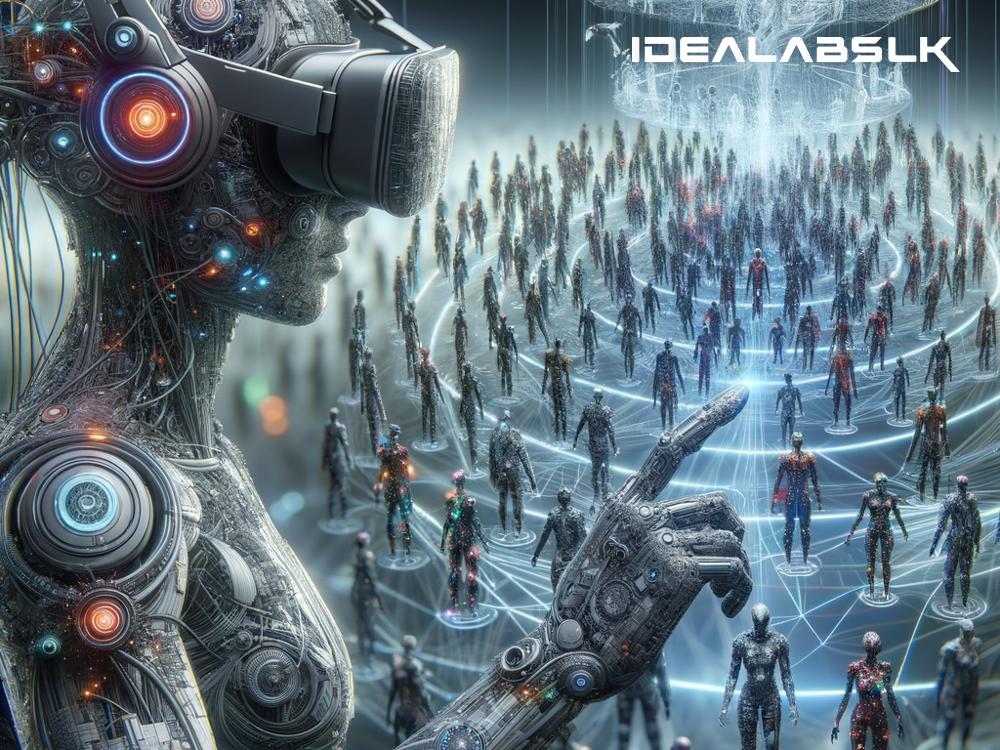The Future of AI in Game Content Creation: How AI Will Assist Developers in Designing Worlds and Characters in 2025
With the dawn of a new era in technology, Artificial Intelligence (AI) is set to dramatically revolutionize the way we create and interact with video games. By 2025, AI's imprint on game development is expected to reach unprecedented levels, particularly in crafting immersive worlds and characters that capture our imaginations like never before. In this article, we'll dive into the exciting possibilities and changes AI will bring to game content creation in the near future.
AI: Changing the Game
The game development process is complex, time-consuming, and often limited by human creativity and productivity. Enter AI, and these constraints begin to diminish. AI's role in game design is not to replace human creativity but to augment it, streamlining processes and granting developers the freedom to explore new creative vistas.
World Building with AI
Imagine creating vast, intricate worlds in days rather than months. This is the promise AI holds for game development. By 2025, AI algorithms will excel in generating expansive, highly detailed environments based on simple inputs from developers. This means that by providing an AI with basic parameters, such as "desert landscape with ancient ruins," it can generate a unique and vast game world complete with landscapes, weather patterns, and even ecosystems.
This level of automation in world creation allows game developers to allocate more time to fine-tune the narrative and gameplay elements, making games more immersive and engaging. Moreover, AI can create worlds that are not just static backdrops but dynamic environments that evolve based on player actions, leading to more personalized and unpredictable gaming experiences.
Character Design and AI
Character creation is another area where AI's impact will be profoundly felt. By 2025, we'll see AI systems capable of generating diverse and complex characters on the fly. These characters won't just be visually unique; they'll have their distinct personalities, backstories, and motivations, all created with minimal human input.
AI-driven character design tools will leverage vast databases of character traits, historical data, and even literature to craft characters that are not only visually fitting for the game world but also deeply integrated into the narrative. This leads to more engaging storytelling, as characters can react and evolve in nuanced ways to player actions, making each playthrough genuinely unique.
Balancing and Testing Games with AI
One of the most time-consuming aspects of game development is testing and balancing. 2025's AI will handle these tasks with incredible efficiency. AI-driven playtesting tools will be capable of simulating thousands of hours of gameplay in a fraction of the time, identifying bugs, and balancing issues that human testers might miss.
Moreover, AI can also simulate various player behavior patterns, providing developers with valuable data on how different types of players might experience the game. This means that games will not only be more polished at launch but also more accessible and enjoyable for a wider range of players.
Enhancing Creativity, Not Replacing It
The role of AI in game content creation is not to replace human developers but to empower them. By taking care of the more tedious and time-consuming tasks, AI allows game designers and artists to focus on what they do best: being creative. This collaboration between human creativity and AI's capabilities will lead to games that are more richly detailed, immersive, and innovative than we can currently imagine.
A New Horizon for Indie Developers
One of the most exciting prospects of AI in game development is its potential to level the playing field for indie developers. With access to AI tools that can automate world and character creation, small teams (or even solo developers) can undertake projects that would have been unimaginable due to resource constraints. This democratization of game development means we'll likely see an explosion of creativity and diversity in games, with more unique voices and visions coming to the forefront.
Conclusion
As we look towards 2025, it's clear that AI will play a pivotal role in game content creation, opening up new horizons for creativity, efficiency, and innovation. The collaborative future between AI and human developers promises not only to enrich the gaming experience for players but also to redefine what's possible in game development. As developers harness AI's potential, we can expect to see more immersive worlds, more compelling characters, and games that push the boundaries of our imagination. The future of game development with AI is bright, and it's a journey we're just beginning to embark on.

